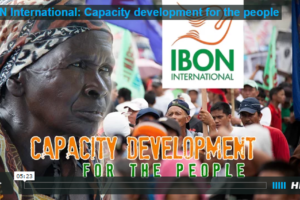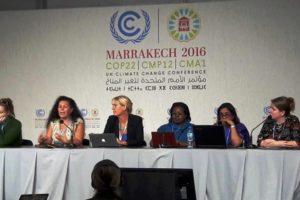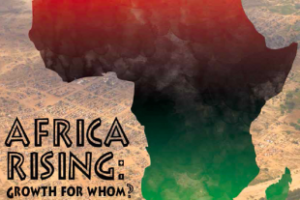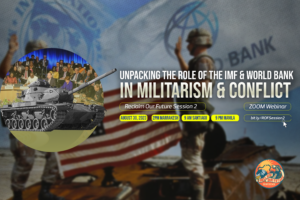During the second day of the 2021 UN Economic and Social Council Forum on Financing for Development Follow-Up, Rodolfo Lahoy of IBON International raised concerns on how today’s private finance-first approaches for infrastructure run counter to addressing inequalities and instead driverights violations, development aggression, and land-grabbing. He highlights the need to democratise broader development planning and investment decisions for transformative and people-centred development. The Forum was held 12 to 15 of April.
Thank you, Mr. Chair. I’m Rodolfo Lahoy from IBON International, speaking on behalf of the Civil Society Financing for Development Group.
Your excellencies, civil society organisations (CSOs) have highlighted the need to ask the right questions today, specifically on the quality of infrastructure investment, and not just quantity. We remain highly concerned about the blended finance drive to divert already-scarce ODA to “de-risk” private investment. Our concerns are supported by the 2020 and 2021 Financing for Sustainable Development Reports, which argue that 1) the “development impact [of blending is] largely unknown”, and that 2) such deals focus on “bankability,” the quickest and maximum private returns. Pursuing old paths despite such findings seem to be embarking on business as usual. Instead, the low 2020 official development assistance (ODA) levels at 0.32% of DAC[1] donors’ combined gross national income, amid today’s triple crises, should actually show the urgency to fulfill ODA commitments in quantity and quality—especially fulfilling and protecting its mandate to address poverty and inequalities.
Although there is much talk about sustainable financing, on-ground realities show that words are not yet translated into action. Making climate-resilient infrastructure into a business opportunity, within the already long history of attracting foreign direct investment almost as an end in itself, risk having projects that are nominally “green” but actually lead to rights violations, development aggression and land-grabbing. For instance, the New Clark City public-private partnership (PPP) in the Philippines, championed by the Asian Development Bank, eroded mountains and destroyed agricultural lands and livelihoods of Indigenous Peoples and peasants to build a so-called “green city”. Such examples put into question fitness of PPPs for today’s sustainability and inclusion imperatives.
Investment decisions and broader development planning need to be democratised and be based on rights. The shrinking civic spaces in many Southern countries today frustrate such possibilities. The 2020 DCF Survey Study shows that trade unions were ‘consulted’ for development cooperation policies only in 22% of surveyed countries, and are “not involved” 54% of the time in countries with national development cooperation forums.
With that said, to this Forum we stress that democratic country ownership and inclusive partnerships are crucial in development plans, infrastructure priorities, and allocating international finance. This is in addition to greater CSO participation in international development forums. On foundations of democratic ownership could infrastructure be based on communities’ rights and needs, and priorities of rural development and strategic industrial policy. Accompanying these would be expanding fiscal space—from debt cancellations, progressive taxation such as wealth and financial transactions taxes, fulfilling ODA commitments in quantity and quality, climate finance commitments, effective investment regulation and capital controls. Private investment should be within such contexts.
To end, our moderator highlighted that we are at a historic moment – we believe this should be met with ambition. Beyond recovering the old policy regimes, beyond “financing gap” narratives, towards a more political vision for transformative, people-centred, sustainable development.###
[1] Development Assistance Committee of the Organisation of Economic Co-operation and Development




